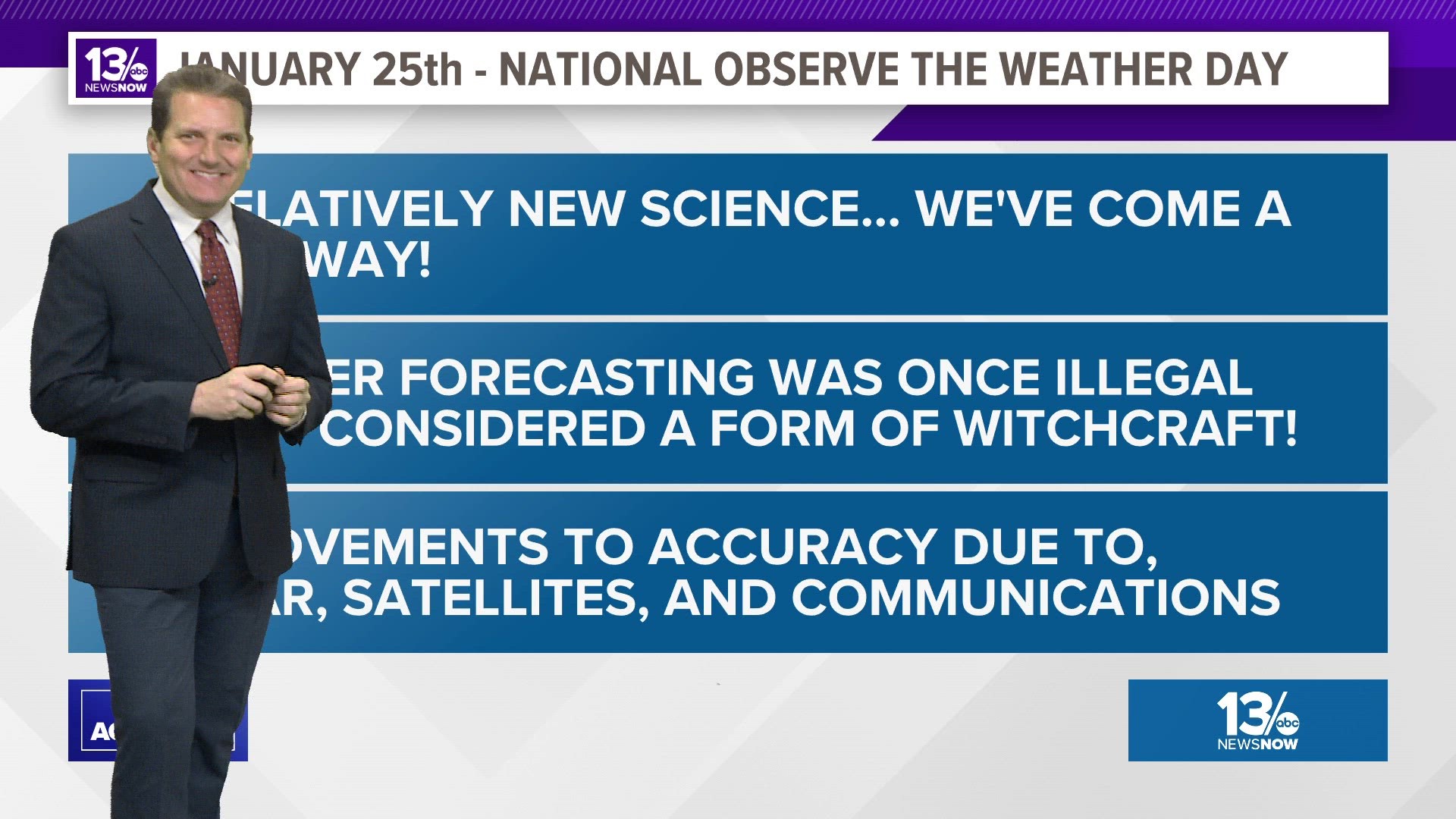NORFOLK, Va. — Have you looked outside today? If so, you've observed the weather! And Thursday, January 25th is a day to do it...it's National Observe the Weather Day!
The weather has been around longer than man. However, some of the earlier known attempts at observing and predicting the weather occurred in Babylonia around 650 BC.
The Greek scholar and philosopher Aristotle compiled his thoughts and some of the modern theories of his time about the weather in his writing "Meteorologica." It was the first known treatise dealing with weather and what drives it.
During the 1400s, 1500s, and 1600s many instruments used to measure weather conditions were invented. The rain gauge, barometer, thermometer, and anemometer were developed and refined in the years following. These instruments are still employed to observe the weather.
In 1854, the United Kingdom Meteorological Office, or UKMET, was established. Royal Naval Officer Robert FitzRoy developed a network of weather reporting stations around the United Kingdom. They observed and reported the conditions happening around the country, and FitzRoy found that after some time, weather occurrences showed similar patterns and were becoming somewhat predictable.
At one point in the United Kingdom, it was illegal to forecast weather as predicting future natural events, like changes to the weather, was thought to be a form of wizardry or witchcraft!
There have been many great advancements in the observation and study of weather over the past century. Radar can analyze storms like never before. Satellites orbiting Earth not only provide a broad view of large storm systems but also have sensors that can read weather conditions in real time in places that were previously inaccessible.
Arguably the biggest leap in our ability to monitor and forecast the weather has resulted in improvements in communication. From the telegraph to improved telecommunications and cell phones, improved technology has allowed us to get more weather observations from more locations quickly amassed, analyzed and processed by forecast models to help predict the weather.
Still, nothing beats eyes on the weather! So take a little time, to feel the warmth of the sun on your face, or the breeze through your hair, or perhaps the gentle pelting of raindrops on your arms. Take some time to observe the weather!

